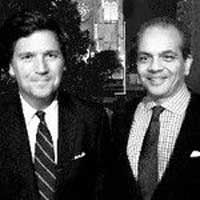Attention readers: Neil Patel is off this week. Please enjoy the following column by David Harsanyi.
It remains something of a mystery why there's so little apprehension among liberal pundits and Democrats about the similarities between battleground state polling for the 2020 presidential election and 2016 contest -- which as you might recall did not turn out as expected.
Consider the case of Wisconsin:
The RealClearPolitics average had Clinton +6.5 in Wisconsin on Election Day in 2016. In August of that year, she had been +11.5. Not a single poll featured on RCP during the entire campaign showed Donald Trump winning the state. Democratic Party nominee Joe Biden has a +3.5 average right now -- which is to say, he is underperforming Clinton in the middle of a pandemic and ensuing economic collapse. This is the case in several battleground states. What happens if the coronavirus continues to ebb or the economy continues rebounding over the next couple of months?
A new CNBC poll, for instance, finds that as serious concerns about the coronavirus fell in six 2020 battleground states, approval of Trump's handling of COVID-19 rose.
This average, incidentally, was taken before the Kenosha riots. As Wisconsin radio host Dan O'Donnell points out to me, many Republicans in the state believe the August 2016 riots in Milwaukee over the shooting death of Sylville Smith (an incident that was eventually ruled to be justified) likely played a role Trump's win. It was around the time the polls began to tighten. "Milwaukee is seen outstate as being wholly unlike the rest of the largely rural population because of its crime and Democrat policies," O'Donnell says. "If people in, say, Appleton and Oshkosh (the other big swing area) and the heavily red suburbs think Milwaukee-style rioting could come to their cities next, Democrats are in big trouble here."
A new Marquette Law School Poll in Wisconsin found that support for Black Lives Matter was dropping even before the riots broke out. In June, approval of protests was widespread, with 61% approving and 36% disapproving. By August, 48% were approving and 48% disapproving. It is possible those numbers will take a bigger hit after Kenosha.
Other swing states find Biden similarly underperforming. He is +5.5 in Pennsylvania today. Hillary Clinton was +9.2 the same day in 2016. Polls would tighten, but Clinton still ended up +2 on Election Day. Biden is +7 in Michigan today, and Clinton was +9 on the same day in 2016. Even in traditionally Democratic Minnesota polls show some tightening.
Florida is the only battleground state where Biden (+3.7) is outperforming Clinton (+2.7). Clinton was up +2.8 in August. The Florida polls would also tighten in 2016. Now, if Trump loses Florida, none of the other swing states are going to matter, anyway. That said, Democrat Andrew Gillum was + 3.6 over Republican Ron DeSantis in the governor's race and Bill Nelson was +2.6 over Rick Scott in the Senate race on Election Day in 2018. Both Democrats were above 50% in at least three of the last five polls conducted in the state, and both lost their elections. That's a trend.
I'm no prognosticator. I was convinced Trump would be beaten soundly in 2016. Maybe pollsters have fixed the problems of four years ago. Or maybe Biden's lead will prove more durable than Clinton's. No election is the same. What I don't understand, however, is why so many people seem so utterly convinced that this time will be different.
-------------------
David Harsanyi is a senior writer at National Review and the author of the book "First Freedom: A Ride Through America's Enduring History With the Gun." To read features by other Creators Syndicate writers and cartoonists, visit the Creators Syndicate webpage at www.creators.com.
COPYRIGHT 2020 CREATORS.COM

















